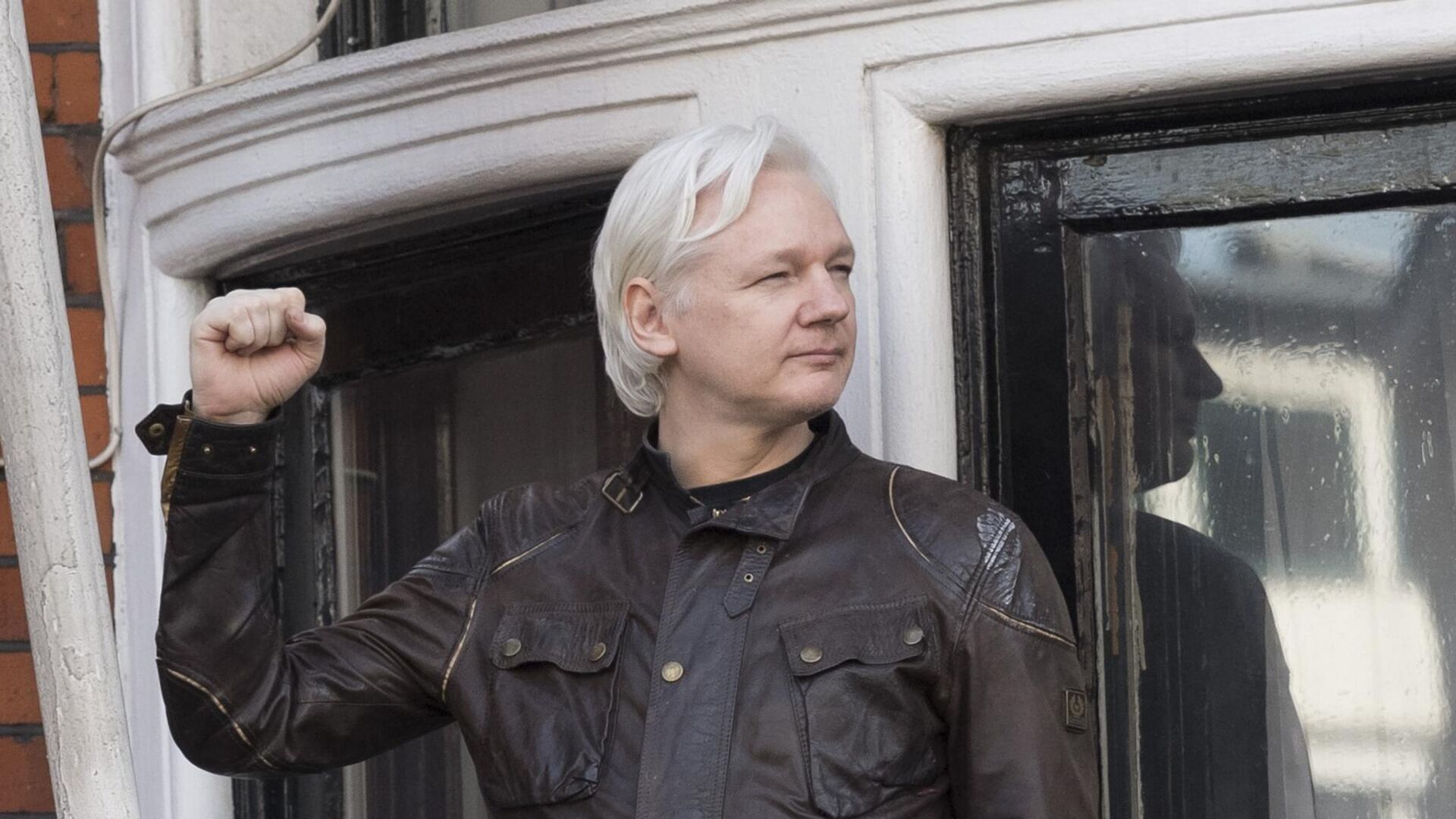https://sputnikglobe.com/20241002/european-lawmakers-recognize-wikileaks-assange-as-political-prisoner-1120389548.html
European Lawmakers Recognize WikiLeaks' Assange as Political Prisoner
European Lawmakers Recognize WikiLeaks' Assange as Political Prisoner
Sputnik International
The Parliamentary Assembly of the Council of Europe (PACE), which brings together lawmakers from 46 European nations, recognized WikiLeaks founder Julian Assange as a political prisoner on Wednesday, a day after he gave testimony on his treatment by US and UK authorities.
2024-10-02T18:36+0000
2024-10-02T18:36+0000
2024-10-02T18:36+0000
world
julian assange
united kingdom (uk)
london
washington
wikileaks
parliamentary assembly of the council of europe
https://cdn1.img.sputnikglobe.com/img/07e8/06/19/1119127086_0:0:1858:1046_1920x0_80_0_0_9ba18fc67acf9260b87037ea1429d53a.jpg
"The Assembly said Mr. Assange’s treatment warranted his designation as a 'political prisoner' under a definition it agreed in 2012, citing the severe charges brought against him by the United States of America, exposing him to possible life imprisonment, combined with his conviction under the US Espionage Act 'for what was – in essence – newsgathering and publishing'," the statement read. PACE said that Washington's failure to investigate war crimes and human rights violations disclosed by WikiLeaks, combined with the harsh treatment of Assange, suggested that the US' purpose in prosecuting the whistleblower was to hide the wrongdoing of state agents, rather than to protect national security. For its part, the UK had failed to effectively protect Assange’s freedom of expression and right to liberty, the parliamentarians said, exposing him to lengthy detention in a high-security prison despite the political nature of the charges against him. Assange gave testimony before PACE's legal affairs and human rights committee in Strasbourg on Tuesday, in what was his first public appearance after his release from a London prison on June 25. He said that one of the conditions of his plea deal with the US was that he would not file a lawsuit with the top European rights court to challenge the verdict. Assange was transferred to London's Belmarsh prison in April 2019 on bail breach charges. In the US, he faced spying charges for shedding light on war crimes and human rights violations committed by US troops in Iraq and Afghanistan.
united kingdom (uk)
london
washington
Sputnik International
feedback@sputniknews.com
+74956456601
MIA „Rossiya Segodnya“
2024
Sputnik International
feedback@sputniknews.com
+74956456601
MIA „Rossiya Segodnya“
News
en_EN
Sputnik International
feedback@sputniknews.com
+74956456601
MIA „Rossiya Segodnya“
Sputnik International
feedback@sputniknews.com
+74956456601
MIA „Rossiya Segodnya“
wikileaks founder julian assange, what did julian assange do, why is julian assange in jail, julian assange released, julian assange trial, julian assange free
wikileaks founder julian assange, what did julian assange do, why is julian assange in jail, julian assange released, julian assange trial, julian assange free
European Lawmakers Recognize WikiLeaks' Assange as Political Prisoner
MOSCOW (Sputnik) - The Parliamentary Assembly of the Council of Europe (PACE), which brings together lawmakers from 46 European nations, recognized WikiLeaks founder Julian Assange as a political prisoner on Wednesday, a day after he gave testimony on his treatment by US and UK authorities.
"The Assembly said Mr. Assange’s treatment warranted his designation as a 'political prisoner' under a definition it agreed in 2012, citing the severe charges brought against him by the United States of America, exposing him to possible life imprisonment, combined with his conviction under the US Espionage Act 'for what was – in essence – newsgathering and publishing'," the statement read.
The resolution was passed in a 88-13 vote, with 20 abstentions. Most of those who voted against the motion hailed from the United Kingdom and Poland.
PACE said that Washington's failure to investigate war crimes and human rights violations disclosed by WikiLeaks, combined with the harsh treatment of Assange, suggested that the US' purpose in prosecuting the whistleblower was to hide the wrongdoing of state agents, rather than to protect national security.
For its part, the UK had failed to effectively protect
Assange’s freedom of expression and right to liberty, the parliamentarians said, exposing him to lengthy detention in a high-security prison despite the political nature of the charges against him.
Assange gave testimony before PACE's legal affairs and human rights committee in Strasbourg on Tuesday, in what was his first public appearance after his release from a London prison on June 25. He said that one of the conditions of his plea deal with the US was that he would not file a lawsuit with the
top European rights court to challenge the verdict.
Assange was transferred to London's Belmarsh prison in April 2019 on bail breach charges. In the US, he faced spying charges for
shedding light on war crimes and human rights violations committed by US troops in Iraq and Afghanistan.


